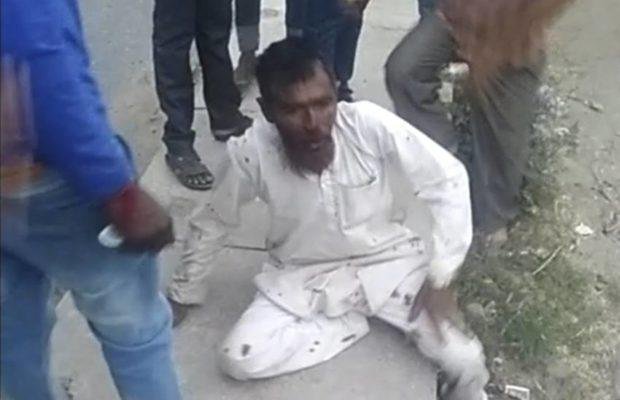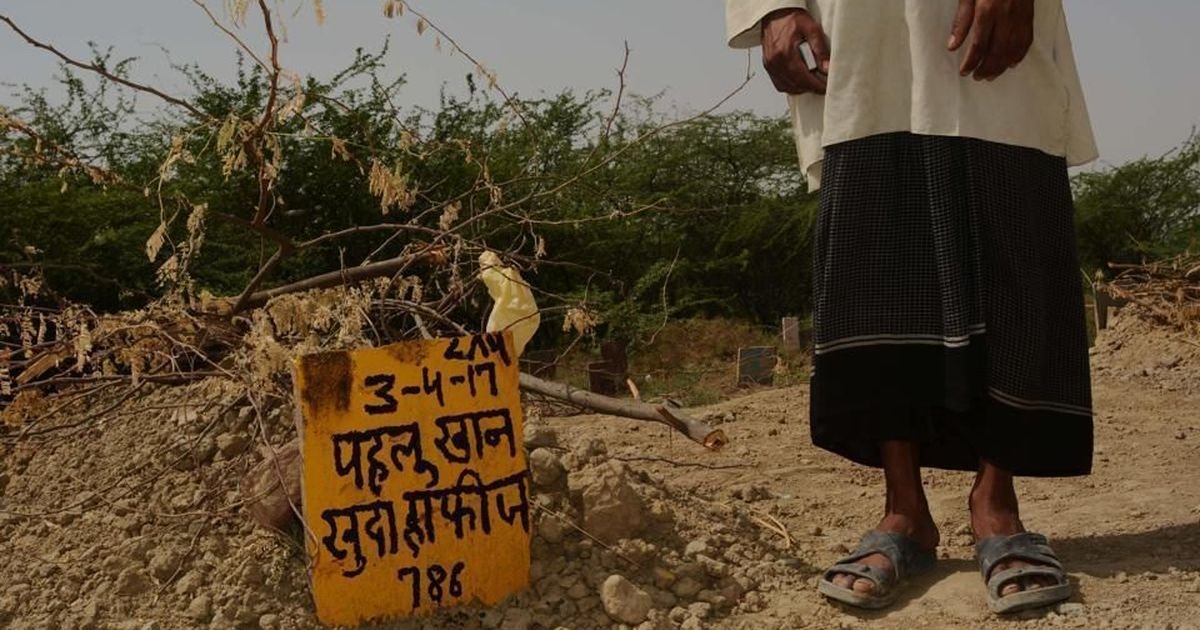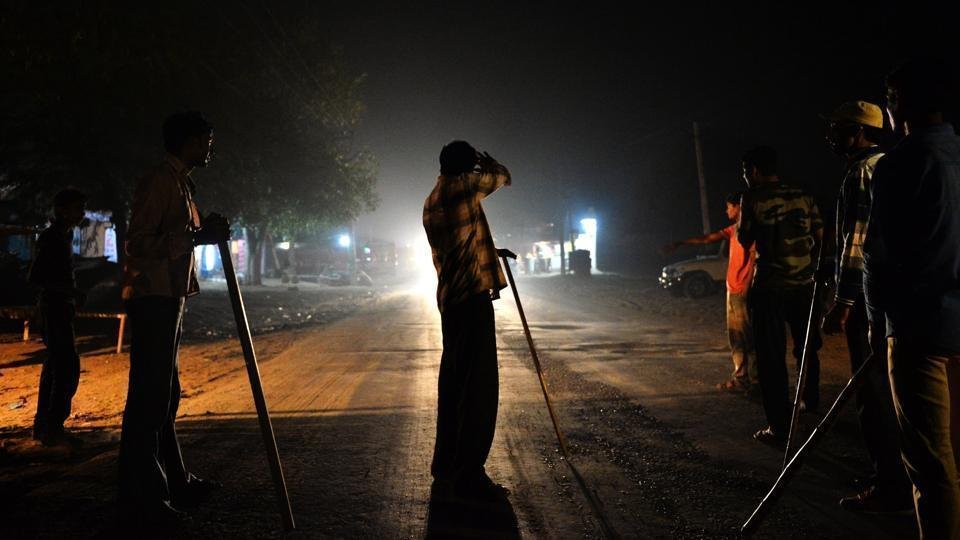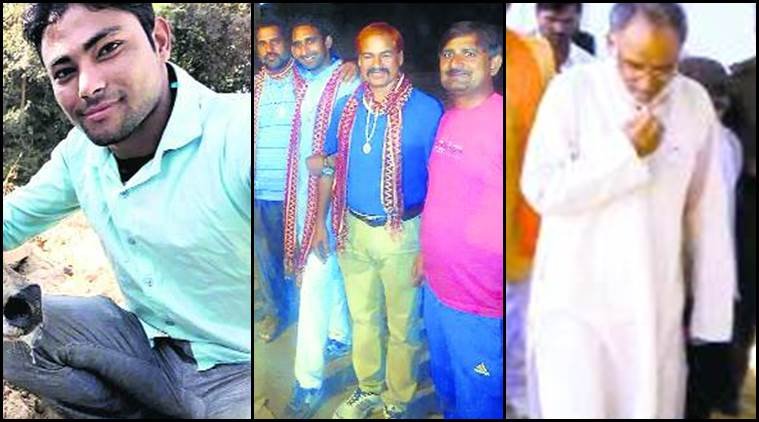An independent fact-finding report, released on Thursday, found glaring holes in Rajasthan Police’s investigation into the lynching of dairy farmer Pehlu Khan. The report says police deliberately tried “to weaken the cases against the accused gau rakshaks” in the case.
In April this year, Khan was attacked while he was transporting cows from Haryana to Rajasthan. Despite showing the necessary documents, he was beaten to death by a group of so-called gau rakshaks, allegedly linked to the VHP and Bajrang Dal.

According to the fact-finding report, which has been endorsed by global and domestic human rights organisations such as Alliance for Justice and Accountability, New York, Citizens for Justice and Peace, Mumbai, Human Rights Law Network, New Delhi, Indian American Muslim Council, among others, there has been a deliberate cover-up on part of the authorities to bring Khan’s murderers to book.
The report states:
“The pattern of behaviour exhibited by the police reflects either monumental inefficiency or a deliberate attempt to weaken the cases against the accused gau rakshaks, nearly all of whom are said to be connected with the BJP and its affiliates such as the VHP and Bajrang Dal.”
Here are the key takeaways: (You can read the full report here)
Although the attack took place between 7 pm and 10 pm on April 1, the FIR was registered only at 4:24 am in the wee hours of April 2. There was a delay of over nine hours in filing an FIR when the crime scene was a mere two km from the police station.

The police, however, claim that they came to know about the attack only at 3:54 am on April 2, whereas they took Khan to Kailash Hospital where they recorded his statement at 11:50 pm on April 1. So, the police is contradicting its own claims.
The report also says that Khan had claimed in his statement, later considered his “dying declaration”, that policemen were present at the site where he was attacked but the FIR does not include the names of those officials.
Pehlu Khan’s family talks to ScoopWhoop News about the glaring loopholes in the Rajasthan Police investigation
Relevant IPC sections ignored
The report also notes that relevant sections of the Indian Penal Code which should have been invoked against the accused were dropped during the investigation.

For instance, it states, ““Khan’s severe beating led to his death. Yet, the FIR does not invoke Sec 307 of the IPC for the offence of ‘attempt to murder’ which provides for imprisonment of 10 years of life. Instead, the FIR invokes Sec 308, which only takes cognisance of ‘attempt to culpable homicide not amounting to murder’, prescribing imprisonment of three to seven years.”
Did the police purposely ignore the IPC sections that were most appropriate in the case?
Main accused not arrested
The report states that it is hard to believe police’s claim that the men named by Khan were untraceable for five months after the attack.

All the accused men were known Hindutva activists in the area and were involved with different institutions of Alwar, it says.
“Khan named six of his attackers in a statement given to the police. But none was arrested. Police concluded that none of those named was involved in the attack. Those arrested were not named either in Khan’s statement or in the FIR. They got bail despite being charged with murder. The bail is even more surprising as the attackers took pictures and recorded videos of their acts which should anyway nail them without doubt.”
It says that police first claimed that the six men named by Pehlu Khan in his dying declaration were untraceable. The police did not freeze their bank accounts or seize their properties, but instead offered a reward of Rs 5,000/-. After five months, they were cleared of all charges. The police claimed they came to the conclusion after summoning the accused and questioning them.
This obviously raises the question, and the report notes, “If the accused were so easily available, why did the police not arrest them? Why did the police announce a reward on them?”
Also, police said that the evidence and statements from witnesses did not prove the crime of the six accused. However, the exoneration was based only on the basis of statements of policemen and workers of a cowshed, which is run by one of the accused men, Jagmal Yadav.
Contradictory medical reports
Another important issue that the report mentions is the manipulation and selective accounting of Pehlu Khan’s post-mortem report.
The government doctors in their report had attributed “shock brought as a result of ante-mortem thoraco-abdominal injuries” as the cause of death, which confirms that Khan, indeed, died due to injuries sustained due to the attack.
However, the police tried to negate these findings by using statements from doctors at the private Kailash hospital who claimed Khan had died of a heart attack.
These contradictory medical reports assume more significance because Kailash Hospital is owned by Kailash Healthcare Ltd, a company, the report claims, owned by Dr Mahesh Sharma, the Union Minister of State for Culture.
It is worth remembering here that Sharma had earlier come under fire for “trivialising” Mohammad Akhlaque’s lynching in Dadri in 2015 by calling it an “accident”.
Right-wing links not examined
In his dying declaration, Khan had claimed that his attackers belonged to the Vishwa Hindu Parishad (VHP) and Bajrang Dal. However, the police did not investigate their links with either of the two right-wing organisations.
The report notes:
“The pattern of behaviour exhibited by the police reflects either monumental inefficiency or a deliberate attempt to weaken the cases against the accused gau rakshaks, nearly all of whom are said to be connected with the BJP and its affiliates such as the VHP and Bajrang Dal.”
Way forward
As a way forward, the investigation suggests that the six men Khan named in his dying declaration should be arrested, a new FIR should be registered, and an investigation ordered into VHP and Bajrang Dal for involvement in Khan’s murder, among other measures.

















